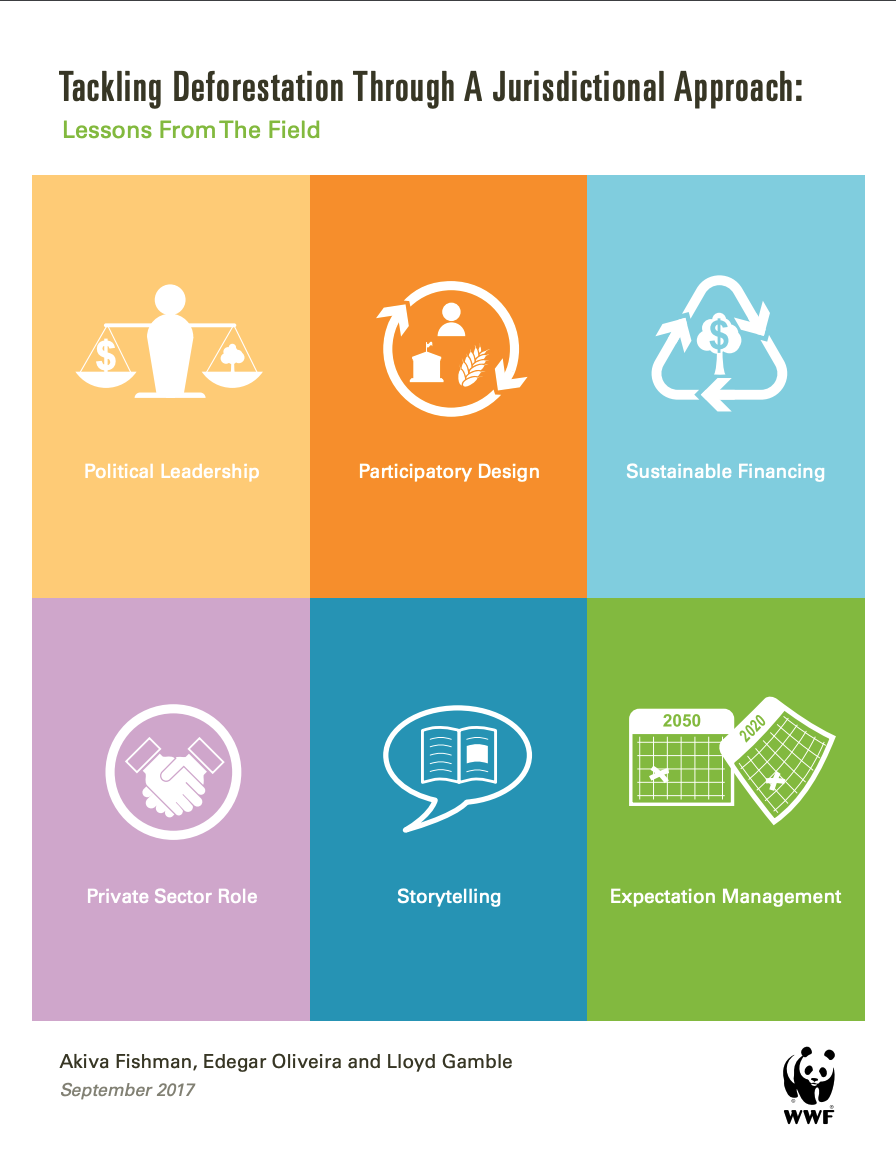Tackling Deforestation Through a Jurisdictional Approach: Lessons from the Field
This paper, developed through a workshop of practitioners convened by WWF, provides case studies and a detailed comparative analysis of five-place based initiatives in Brazil, Liberia, Ghana, and Colombia, and lessons learned extracted from them.
Key learnings are:
(1) Political leadership is key to advancing a jurisdictional approach, but it is also a primary risk; initiatives need to be designed to be resilient to political change.
(2) A push for quick results and a desire to avoid opposition to a jurisdictional initiative sometimes interfere with early, inclusive engagement; however, success in the long term depends on stakeholder engagement in initiative design and implementation.
(3) Several types of financing are needed, likely in stages, to support and sustain jurisdictional approaches; proponents need to differentiate categories of finance and to be able to articulate and align specific needs (and deliverables) to financial offerings.
(4) Private sector actors are crucial for success, given the dominant role that market forces often play in driving land use change compared with public finance. That said, proponents must distinguish the needs and roles of different private sector actors to delineate asks, expectations, and compelling partnerships.
(5) Skilled and tailored storytelling that articulates a jurisdictional initiative’s goals, needs, and early successes is critical to building support and growth among different audiences.
(6) The complexity and duration of jurisdictional initiatives requi re sustained investment to achieve systemic change; therefore, local and global expectations should be thoughtfully managed to avoid creating unachievable goals or time frames, and to help ensure lasting results.
